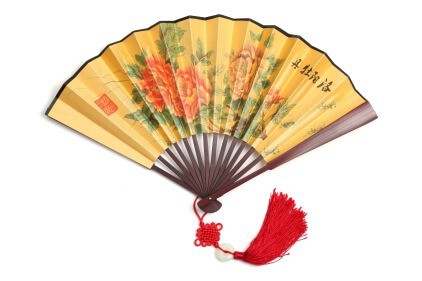

The concept of air conditioning is as old as… well, pretty old.
Hi, Sir Fix-A-Lot here with another post. For those that don’t know me, I’m the knight that Knight Plumbing is named after.
And if there’s one thing knights know plenty about, it’s history! Swords, maces, horses—we’re authorities on all of that stuff. We’re history buffs! So here comes a history of air conditioning, straight from the knight’s mouth!
The Early Days
Officially, the earliest record of something we call air conditioning is to be found in ancient Egypt. No vents and fans here, just good old fashioned leaves and water.
Ancient Egyptians would hang water-soaked reeds over their windows. As wind blew through the reeds, the water would evaporate, cooling the air. Cool right? Sure, maybe this method isn’t as effective as modern central air, but it was an innovation for the time. I bet the ancients were glad of anything to take the edge off the desert heat. Plus, they were probably too busy building sphinxes and pyramids to invent electricity.
When it comes down to it, the basic concept of air conditioning has been around as long as sweat. While your body is not technically cooling the air around you (actually it’s doing the opposite), the way your skin uses the evaporation of water to control its temperature is actually quite similar to the way an air conditioner or a fridge works.
How do I know that? Let’s just say it’s little hot under all this armour.
Mechanical Cooling
As things went on, the world didn’t get much cooler, and so humans were forced to find ever more elaborate ways of staying cool. For a while most used fans, and that worked okay, especially if you were a king and had a servant to blow air at your face.
However, without electricity, fans were limited by the strength of your servant’s arm.
Meanwhile, in China, people were coming up with all sorts of fantastic solutions to the problem of heat. Again, it was mostly rulers that were driving the technological development. Rulers have a way of getting what they want, and who wants to be hot?!
Thus the Chinese imperial palace became literally the coolest building in the world for some time. Chinese engineers developed the first air conditioning systems for the stately building, making their emperor very happy, though how the engineers felt about the whole thing is lost to history.
Modern Air Conditioning
Air conditioning began to move west slowly. First, a man named Cornelis Drebbil turned “summer into winter” for James I of England, by the simple trick of adding salt to water.
Then, through a complicated series of events involving Ben Franklin, Michael Faraday, ether, alcohol and plenty of determination, chemists began developing ways of making the simple concept that began soggy reeds even more efficient and effective.
Soon, chemists were producing ice on hot days, something that must have seemed like magic in 1851, even though we take it for granted now. Today, I can go to my refrigerator and there’s ice in there. Before the 1800s that was an unthinkable concept. What a world we live in!
Soon, with the advent of electromagnets, air conditioning was almost a reality. But it took the genius of one man, Willis Carrier, to flip the switch and forever change the way human beings lived in the summertime.
Finally!
And so, while Carrier gets credit for the invention of the modern air conditioner, he was simply the last link in a long chain of innovations, one that began with sweat and wet leaves and moved through Chinese engineering and ice making to end with the invention of what we all know as the modern air conditioner.
In retrospect, if they had just invented the air conditioner in ancient Egypt, they could have saved us a lot of time, and a lot of sweat-rusted suits of armour.
These days, I’m as cool as a cucumber. As a write this, I’m being blasted by sweet cool air from my central air. Magnificent! Thanks Ben Franklin. But most of all, thank you wet leaves. Without you, none of this ever would have happened.


